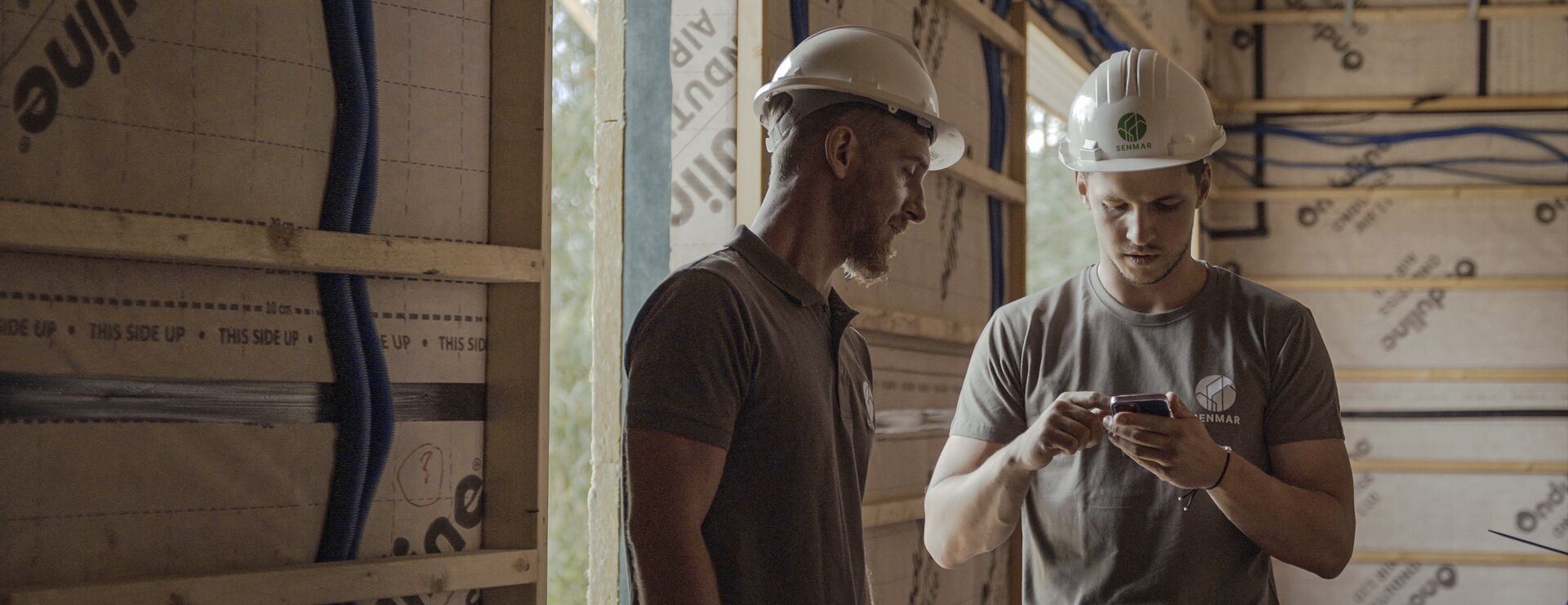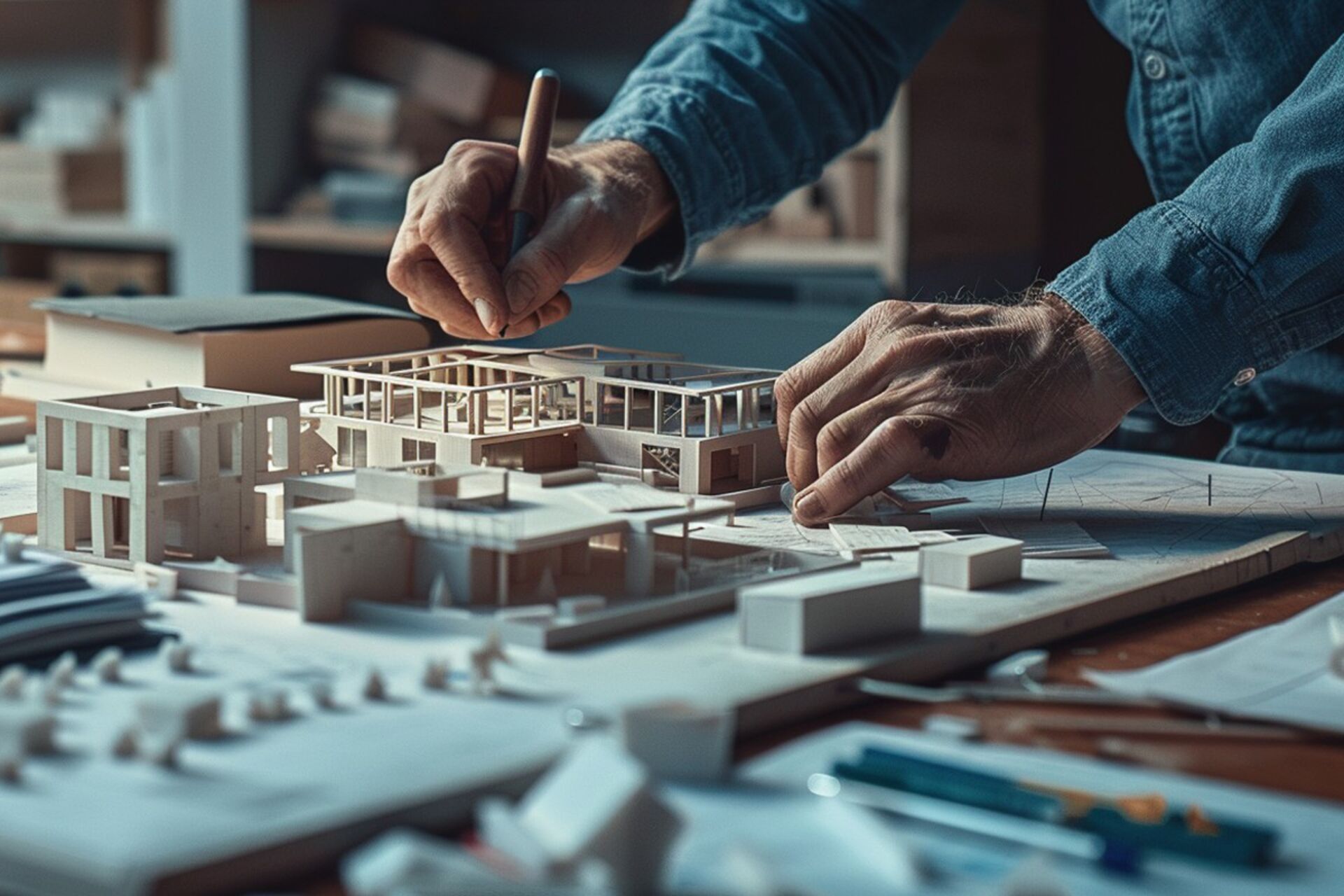How to Build a House
Building a house can seem overwhelming without prior experience, but by breaking it down into clear steps and understanding who to contact, the process becomes manageable. Here is what to expect:
Defining Your Vision and Budget
To start your building journey, it is essential to have a clear vision and set a realistic budget for your new house or commercial space. Consider what you need in terms of size, style, and features that align with your purpose whether it is a home or a business. Defining these elements early helps in selecting the right design and financial options.
Finding and Purchasing Land
Choosing the right piece of land is a crucial step. Factors like location, size, accessibility, and local zoning regulations are important to ensure the land suits your needs. If you already have a plot in mind, you are ahead of the game. If not, our team or a real estate agent can provide guidance to help you find and secure the ideal site for your project.
Collaborating with an Architect or Designer
Once the land is secured, the next step involves working with an architect or designer to bring your vision to life. This collaboration allows you to customize the layout, finishes, and features that match your specific needs. Our experts are here to ensure that your design is both functional and visually appealing, tailored to suit residential or commercial use.
Obtaining Necessary Permits
Navigating the permit process is crucial to avoid delays. Depending on your location and project scope, you may need various permits, such as building permits, zoning permits, or environmental approvals. Our team, along with your architect or designer, will guide you through these steps, handling the paperwork and ensuring all regulations are met.
Securing Financing
Financing is a key part of most building projects. If you need financial assistance, exploring options like construction loans or mortgages is an important step. We can connect you with trusted lenders who specialize in financing for both residential and commercial buildings, helping you find a solution that fits your budget and goals.
Selecting a General Contractor
A skilled general contractor manages the entire construction process, coordinating the work of various specialists and ensuring that your project stays on schedule and within budget. Selecting a contractor with experience in both residential and commercial construction is key. Our network of vetted professionals ensures a seamless building experience, maintaining quality and efficiency throughout.
Beginning the Construction Process
With a general contractor in place, construction begins. This phase involves several key stages, each handled by different specialists:
- Site Preparation: Clearing the land, grading, and setting up utilities to prepare for building.
- Foundation Work: Laying the foundation, which could be a slab, crawlspace, or basement, depending on your needs.
- Foundation Work: Laying the foundation, which could be a slab, crawlspace, or basement, depending on your needs.
- Framing: Constructing the framework, including walls, floors, and the roof structure.
- Plumbing, Electrical, and HVAC: Installing essential systems for water, electricity, heating, and cooling.
- Roofing and Siding: Completing the exterior by adding the roof and outer walls.
- Interior Work: Installing insulation, drywall, flooring, windows, doors, and fixtures to create functional spaces.
- Finish Work: Applying final touches such as painting, cabinetry, countertops, and more to complete your building.
The general contractor coordinates with subcontractors for each phase, such as plumbers, electricians, and roofers, to ensure that every aspect is handled by experts.
Ensuring Proper Inspections
Throughout construction, inspections are necessary to ensure safety and compliance with building codes. These inspections typically occur after major phases, such as the foundation, framing, and final construction. Your general contractor manages these inspections, but it is beneficial for you to stay informed about the schedule and any required adjustments to keep the project on track.
Conducting a Final Walkthrough and Punch List
As construction nears completion, a final walkthrough with your general contractor allows you to review the work and identify any last adjustments or corrections needed before moving in or opening for business. This ensures that everything is completed to your satisfaction and that your new building is ready for occupancy.
Obtaining a Certificate of Occupancy
Once all work is complete and passes the necessary inspections, you will need to obtain a Certificate of Occupancy. This document confirms that your building complies with local building codes and is safe to live in or operate from. Your general contractor or local government office can assist you with this final step to ensure everything is in order.
Moving In or Opening Your New Space
With the Certificate of Occupancy in hand, it is time to move in and start enjoying your new space, whether it is a home or a commercial building. This stage is about settling in and appreciating the quality and efficiency of your newly constructed environment. Our team is available to support you with any questions or needs as you settle in or begin operations.
Why Choose Us?
- Streamlined Process: We assist in preparing the necessary documents and guiding you through the process to help obtain all required permits from regulatory authorities.
- Customizable Designs: Create a space tailored to your needs, whether for residential or commercial purposes.
- Expert Guidance from Start to Finish: Our team is with you every step of the way, ensuring a smooth experience with clear communication and support.
- Quality and Efficiency: High-quality materials and skilled professionals ensure a durable and energy-efficient building.
- Trusted Network of Professionals: Work with our vetted architects, designers, contractors, and lenders for a seamless project from design to move-in or business setup.
Additional Tips for a Smooth Building Experience
- Maintain Open Communication: Regular communication with your general contractor, architect, and other key players is essential. Keeping everyone on the same page helps avoid misunderstandings and delays.
- Keep Thorough Records: It is helpful to maintain a file of all contracts, permits, receipts, and warranties. These documents will be valuable for reference throughout the building process and beyond.
- Prepare for Unexpected Costs: Setting aside a contingency fund, usually around 10-15% of your budget, can help cover any surprises or changes that occur during construction. Being financially prepared for the unexpected makes the process smoother.
By following these steps and staying engaged throughout the process, building a home or commercial space can be a straightforward and rewarding experience. Our team is dedicated to helping you bring your vision to life with ease and confidence.




